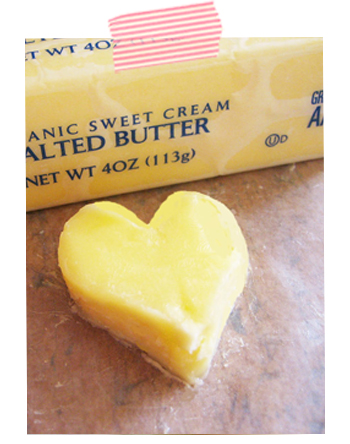Of Yesteryear …

Not that we are surprised by the disappearance of these jobs, but we find it so interesting to read about the ways in which things had to be done.
Night Soil Men
In the 19th century, most cities did not have municipal sewer systems. Instead, people relied on outhouses and privies. These, however, were not bottomless pits — they had to be routinely emptied. The person responsible for this “crappy” job was the night soil man. Named because he usually worked under the cover of darkness, the night soil man emptied privies with long-handled buckets and loaded them onto carts, taking the fertilizer to local farms. (But, more often, dumped into the nearest waterway.)
Herb Strewer
Before the invention of the flush toilet in the 18th century, cities often smelled less than desirable. But if you were wealthy enough in the 17th century, you could hire a herb strewer to keep the aroma fresh. King George III, for instance, employed a herb strewer named Mary Rayner, a woman who spent more than 40 years scattering flowers, herbs, and other natural fragrances throughout the royal residence to make it smell welcoming; popular plants included lavender, roses, chamomile, sweet yarrow, basil, marjoram, and violets.
Aircraft Listener
The first practical demonstration of using radar for aircraft detection occurred in the 1930s. By then, airplanes had already been taking flight for more than three decades. Consequently, during times of war, soldiers had to deploy clever methods to find enemy aircraft. During World War I, aircraft listeners used war tubas, which, according to CNN, were “essentially large horns connected to a stethoscope.” Other aircraft listeners used acoustic mirrors , large concrete dishes that amplified sound coming from above.
Knocker-Uppers
Before the advent of the alarm clock, industrial-era workers who needed help waking up in time for work would hire knocker-uppers. These hardy souls would rise in the early hours of the day and patrol the streets with sticks, tapping on their clients’ bedroom windows each morning. Some knocker-uppers, like Mary Smith, were not fans of the stick method: She roused the local sleepyheads by shooting peas at their window panes.
Linkboys
In William Shakespeare’s Henry IV, Falstaff says, “Thou hast saved me a thousand marks in links and torches, walking with thee in the night betwixt tavern and tavern.” Turns out, that’s a pretty accurate description of a linkboy. Typically a young, low-class male, linkboys escorted pedestrians through dark city streets with a torch. The job eventually became obsolete after cities installed streetlamps. (Incidentally, the phrase “can’t hold a candle to…” was likely a reference to linkboys; anybody who couldn’t “hold a candle” better than a low-class linkboy was viewed as extremely inferior.)
Linotype Operators
Starting in the late 19th century, lines in newspapers and magazines were often created with a linotype machine. The linotype machine was revolutionary for its time. Before the machine, each letter of an article was individually set by hand into a mold for print. The linotype machine eliminated this process by having operators type each line with a special 90-key keyboard, creating a “line o’ type” set in lead, and then that stamp was used to print the text. This technology was used for almost 100 years, eventually tapering off in the ‘60s and ‘70s.
Arabbers
Like a mobile grocery store, arabbers wandered the streets on the East Coast with horse-drawn carts filled with fruits, vegetables, and other fresh produce in the 1920s. (The job was almost always filled by African Americans who had been locked out of the job market.) Today, there are only a handful of arabbers left in Baltimore, Maryland, where they continue to provide fresh food to neighborhoods designated as food deserts. Heard less frequently than in the past, the historic singsong of the city’s arabbers has never stopped ringing out. In the past few years, however, the vendors’ mission to bring healthy fare to underserved communities became more urgent amid stay-at-home orders and fraught trips—often by bus in low-income neighborhoods—to the grocery store. It’s a mission that’s also expanded in the midst of the COVID-19 outbreak.
Water Carriers
Like arabbers, water carriers still exist, but they’re an endangered profession. These vital workers have been around for millennia, trudging water from rivers and wells to people’s homes. Some used buckets hanging from a yoke or leather sacks, while others lugged large tankards over their shoulders. And while the water carrier was mostly replaced by modern plumbing, some places still commemorate the once-vital profession. In Hamburg, Germany, a water-carrier named Hans Hummel is celebrated as the local mascot, with more than 100 statues of his likeness sprinkled throughout the city.
We have certainly come a long way!

Comments are closed.







Hi Robin and Jackie: An interesting part of yester year this would not be familiar to those in southern climates would be the ice cutters. In the north when the lakes froze, large blocks of ice (4′ X 3′) would be cut and stored in sheds filled with straw. These large blocks would be would be broken or cut in half and delivered to homes for their refrigerators. There were no freezers so the top part of the refrigerator was a holder for your block of ice. This would melt of course and the drip pan in the bottom of the fridge would have to be emptied before it overflowed. I can remember the ice being delivered to our house by house and cart. The guy would have super sized tongs to carry the ice into the house. If it was summer and you were very lucky he might break off a small piece for you to suck. this was of course just a few years after T-rex had left the area. Sheilia
Thank you so much, Sheilia, for this. SO interesting and yes, of course, just before T-Rex had left the area! Love your sense of humor. Thanks again and much love to you.